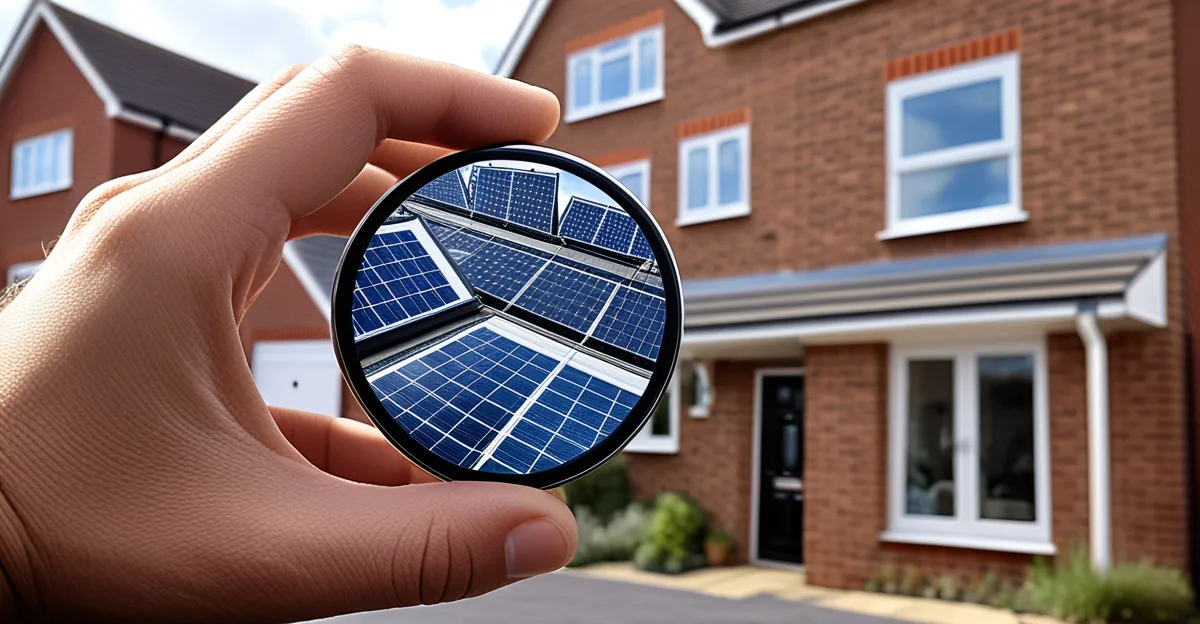Overview of Emerging Technologies in the UK Real Estate Market
Emerging technologies are reshaping the UK real estate market by enhancing efficiency, transparency, and stakeholder engagement. Over recent years, the sector has witnessed significant adoption of proptech innovations, ranging from AI-powered valuation tools to blockchain-based property transactions. This digital transformation is no longer optional but essential for staying competitive.
Historically, technology adoption in UK real estate was slow, with reliance on traditional practices dominating for decades. However, recent advances have accelerated a shift toward automation, data analytics, and smart solutions. The integration of these technologies addresses critical industry pain points such as time-consuming manual processes, lack of centralized data, and fragmented communication.
Topic to read : How do UK housing policies affect real estate investments?
For property stakeholders, digital transformation translates into faster, more accurate decision-making and enhanced customer experiences. Developers, agents, and investors benefit from real-time insights and predictive analytics, which are key drivers of value creation. The rise of cloud computing and mobile applications supports seamless collaboration among stakeholders, improving transparency and accountability.
Consequently, embracing these emerging technologies is vital for the UK real estate market to modernize operations, reduce costs, and unlock new growth opportunities in an increasingly digital economy.
Also read : How do UK housing policies affect real estate investments?
Artificial Intelligence Transforming Real Estate Processes
AI in real estate is rapidly changing how property analysis and decision-making occur. AI-driven valuation tools provide faster, more accurate property price assessments by analyzing vast datasets, incorporating market trends and localized factors. This precision benefits buyers, sellers, and investors by reducing guesswork and enabling smarter investments.
Predictive analytics powered by machine learning forecasts sales and rental trends, optimizing investment strategies. For example, algorithms can predict property demand fluctuations and rental yields, guiding portfolio adjustments. This reduces risks and increases returns for stakeholders.
However, adopting AI in the UK real estate market faces challenges, including data quality issues and integration with existing systems. Ethical considerations also arise, such as algorithmic bias potentially affecting fair property valuations or access. Transparency in AI decision processes is essential to foster trust among property stakeholders.
Despite hurdles, the benefits of AI in real estate—from enhanced property search capabilities to improved investment forecasting—are significant. Continuous refinement of AI in real estate tools, combined with responsible use, will further accelerate digital transformation and efficiency in this sector.
Blockchain Revolutionising Property Transactions
Blockchain real estate technology is transforming property transactions by offering a secure, transparent alternative to traditional record-keeping. Each property’s title and history can be stored on an immutable blockchain ledger, reducing fraud and errors. This innovation enhances trust among stakeholders and simplifies verification.
A key element of blockchain adoption in real estate is the use of smart contracts, which automate agreements such as sales and leasing processes. These contracts execute automatically when pre-defined conditions are met, cutting down paperwork, delays, and transaction costs. For example, once funds are verified, ownership transfer happens instantly and transparently.
However, the adoption of blockchain in the UK real estate market faces hurdles. Regulatory uncertainty slows acceptance, as compliance with existing property laws must align with blockchain’s decentralized nature. Additionally, initial setup costs and limited integration with legacy systems create barriers.
Despite challenges, blockchain’s potential to streamline and secure property transactions makes it a critical emerging technology. As regulatory frameworks evolve and integration improves, the UK real estate market will likely see broader blockchain adoption, driving efficiency and confidence in property dealings.
Blockchain Revolutionising Property Transactions
Blockchain real estate technology is transforming property transactions by providing a secure and transparent method for recording data. At its core, blockchain real estate enables immutable, tamper-proof property records that significantly reduce fraud risks. This decentralised ledger ensures every transaction is traceable, creating greater trust among buyers, sellers, and intermediaries.
Smart contracts play a crucial role by automating and streamlining sales and leasing processes. These self-executing agreements act once predetermined conditions are met, cutting down on paperwork, delays, and the need for third-party validation. For UK real estate market stakeholders, this means faster closings and lower administrative costs.
However, blockchain adoption faces barriers including regulatory uncertainties and integration challenges with existing property databases. The UK’s legal framework is still evolving to accommodate blockchain solutions fully. Some parties remain cautious about compliance and data privacy implications.
Despite these hurdles, the momentum behind blockchain real estate shows promise. As regulatory clarity improves and technology matures, property transactions using blockchain and smart contracts will become more widespread. This shift is poised to enhance efficiency, transparency, and security for all parties involved in the UK real estate market.
Internet of Things (IoT) and Smart Property Management
The IoT property management revolution is transforming how buildings operate in the UK real estate market. By embedding sensors and connected devices, smart buildings enable real-time monitoring of systems such as heating, lighting, and security. This continuous data flow allows property managers to optimize energy use, reduce operational costs, and prevent equipment failures before they occur.
Beyond operational efficiency, IoT enhances tenant experience by providing personalized environments and seamless controls via mobile apps. For instance, adaptive lighting and climate control improve comfort while lowering waste. Moreover, smart buildings can automate routine maintenance tasks, freeing managers to focus on strategic priorities.
Examples in the UK demonstrate how emerging technologies integrate IoT for sustainability and tenant satisfaction. These applications not only increase property value but also align with growing regulatory demands for energy efficiency.
However, challenges remain. Interoperability among different IoT platforms and robust cybersecurity require careful attention to protect data integrity and privacy. Despite these hurdles, the rise of IoT in property management is a significant step toward smarter, greener real estate, offering clear benefits to all stakeholders involved in the UK market.
Internet of Things (IoT) and Smart Property Management
IoT property management is revolutionising how buildings are monitored and maintained in the UK real estate market. By embedding sensors and connected devices within smart buildings, real-time data on temperature, humidity, energy use, and security is continuously collected. This allows property managers to automate controls, detect faults early, and optimise resource consumption, driving notable energy efficiency improvements.
For tenants, IoT enhances daily experiences by enabling smart lighting, climate control, and predictive maintenance, reducing disruptions. Property stakeholders benefit from increased operational efficiency and cost savings, as remote monitoring cuts down manual inspections and reactive repairs.
Prominent UK smart buildings demonstrate successful IoT applications, including multi-site estates using dashboards to centralise data from hundreds of sensors. Such setups provide actionable insights, improving asset management and tenant satisfaction simultaneously.
IoT property management also supports sustainability goals, aligning with growing regulatory emphasis on reducing carbon footprints in real estate. Challenges remain around data integration from diverse systems and ensuring cybersecurity, but IoT’s role in transforming property management is well established. Its continued adoption will be crucial to maintaining competitive advantage and meeting modern occupier expectations within the UK real estate market.
Benefits and Challenges of Technology Adoption in UK Real Estate
Adopting emerging technologies in the UK real estate market brings notable technology benefits such as enhanced operational efficiency and greater transparency for agents and consumers. Automation reduces manual errors and accelerates transaction times, while digital platforms centralize data, improving accessibility and decision-making. These advances help property stakeholders save time and cut costs.
However, adoption challenges persist. Integration with legacy systems is often complex, requiring significant investment and expertise. Data privacy concerns and cybersecurity risks are particularly critical, as real estate transactions involve sensitive personal and financial information. Ensuring robust protection against breaches is essential to maintain trust.
Moreover, a digital skills gap affects the sector’s readiness to fully embrace technology. Many traditional firms face hurdles in upskilling staff or attracting tech-savvy talent, slowing transformation efforts. Overcoming these challenges involves targeted training and fostering a culture of innovation.
In summary, while emerging technologies offer clear advantages, the UK real estate market must strategically address adoption challenges. Successfully navigating this balance will enable the sector to unlock the full potential of proptech innovations and meet evolving industry demands.
Overview of Emerging Technologies in the UK Real Estate Market
The UK real estate market has witnessed a transformative wave fueled by numerous emerging technologies. Central to this evolution are proptech innovations that have shifted long-standing traditional practices toward more digital, data-driven approaches. Initially, technology adoption in this sector was cautious, reflecting the industry’s complexity and regulatory demands. However, the growing need for operational efficiency and transparency has accelerated acceptance.
Key technology trends include AI-powered property analysis, blockchain for secure transactions, and IoT-enabled smart buildings. These advancements streamline processes, reduce errors, and enhance tenant and investor experiences. For example, AI tools refine property valuations and predict market movements, while blockchain guarantees immutable records and automates contracts. Simultaneously, IoT systems boost energy efficiency and real-time building management.
For property stakeholders, embracing digital transformation is essential. It facilitates faster decision-making, optimizes resource allocation, and unlocks new revenue streams. Despite some challenges—such as integrating new systems with legacy infrastructure and addressing data privacy concerns—the overall impact is positive. The ongoing evolution of proptech innovations continues to redefine how the UK real estate market operates, positioning it for sustained growth and competitiveness in an increasingly digital world.
Virtual and Augmented Reality in Property Marketing
Virtual tours and augmented reality real estate solutions are transforming property marketing tech by enabling immersive, remote viewings that attract more prospective buyers. Virtual tours allow users to explore properties from anywhere, offering detailed 3D walkthroughs that enhance engagement and reduce the need for in-person visits. This is particularly valuable in the UK real estate market where buyers often seek convenient, time-saving options.
Augmented reality adds another dimension by allowing buyers to visualize interior designs and renovations in real-time. For example, AR tools enable clients to experiment with furniture placement or decor changes on-site or virtually, making decision-making more interactive and personalized. This technology bridges the gap between imagination and reality, making properties more appealing.
These emerging technologies streamline marketing and shorten sales cycles by facilitating a richer, more accessible viewing experience. Additionally, they help agents differentiate their listings in a competitive market, improving conversion rates.
The integration of virtual tours and AR requires investment in software and training but yields significant returns through increased buyer interest and faster transactions. As proptech innovations mature, VR and AR will become standard features in property marketing strategies across the UK.
Overview of Emerging Technologies in the UK Real Estate Market
The UK real estate market has transitioned from cautious tech adoption to embracing a broad range of emerging technologies. Historically, resistance stemmed from regulatory complexities and traditional practices, but the rise of proptech innovations has accelerated change. Key technology trends shaping the property sector include AI-driven analytics, blockchain for secure transactions, and IoT-enabled smart buildings.
Digital transformation is crucial for property stakeholders, providing faster decision-making and operational efficiencies. For instance, AI enhances property analysis with refined valuations, while blockchain ensures transparent and tamper-proof transaction records. IoT empowers smart buildings to optimize energy use and tenant comfort in real time.
This integration addresses longstanding challenges, such as fragmented data and inefficient manual processes. The adoption of proptech innovations improves collaboration among developers, agents, and investors by centralizing data and automating workflows. Such technologies unlock new revenue streams and competitive advantages in an increasingly digital economy.
Despite these advancements, integrating emerging technologies with legacy infrastructure remains a hurdle. Yet, ongoing developments signal the UK real estate market is on a clear path to digital maturity, driven by continuous innovation and stakeholder demand for heightened transparency, efficiency, and sustainability.




